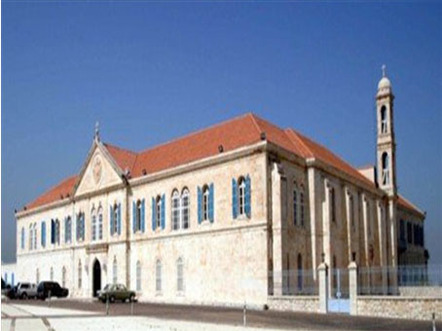Report: Bkirki 'Rejects' Nasrallah's Rhetoric

Bkirki on Thursday criticized Hizbullah chief Sayyed Hassan Nasrallah who rejected the Patriarch's calls for a U.N. resolution under Chapter 7 in Lebanon amid a complex process of a cabinet lineup, Nidaa al-Watan newspaper reported on Thursday.
“No one is joking about this issue. Bkirki does not make jokes, certainly he is the one making a joke,” Bkirki sources told the newspaper on condition of anonymity.
“If our project leads to war and devastation, then let him (Nasrallah) tell us where his project led the country to?” asked the sources, clearly referring to Hizbullah's arms and involvement in regional wars.
They added assuring that “Patriarch Beshara el-Rahi is serious in his proposal, and Nasrallah’s response in this manner does not rise to a proposal that salvages Lebanon."
“Nasrallah’s rhetoric is rejected. The patriarchate and the Patriarch's rhetoric and suggestions should not be questioned. The Patriarch has never risked the fate of the country and did not expose its people to danger," they emphasized.
On Tuesday, Nasrallah said that calls in Lebanon for a U.N. resolution under Chapter 7 should no government be formed are “condemned.”
He explained that internationalization “harms Lebanon, complicates its issues and contradicts with sovereignty.”
On Sunday, al-Rahi called for organizing a U.N.-sponsored international conference on Lebanon that should seek to “prevent attacks on it and harm to its legitimacy and would put an end to the multiplicity of arms.”
"The patriarchate and the Patriarch's rhetoric and suggestions should not be questioned."
Why is that? Everyone should be questioned, every single person involved in politics especially in Lebanon should carefully be questioned whether it’s Rahi, Daryan, Qabalan or any other clerical people.
I would recommend to read the history of Lebanon, a short summary is in Wikipedia, you will find that since the 16th century political conspiracies and corruption have always existed in this country. The average Lebanese family, of all religions, lived a very modest life, and their existence often depended on the local feudal chief. Nothing has changed, the same feudal names still control the land and they use the religions to keep the population divided and misinformed.



